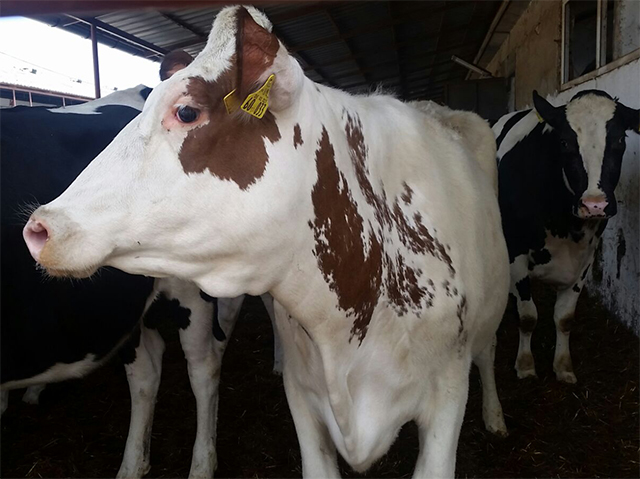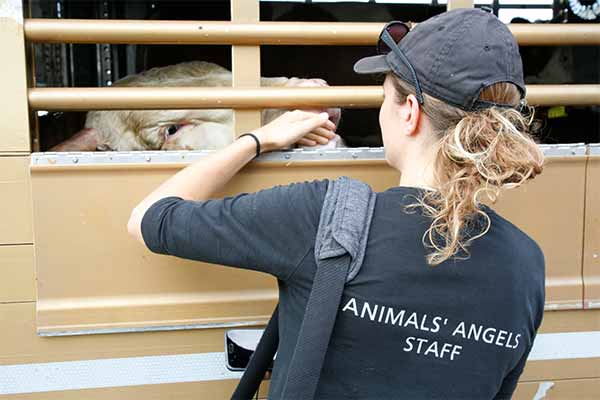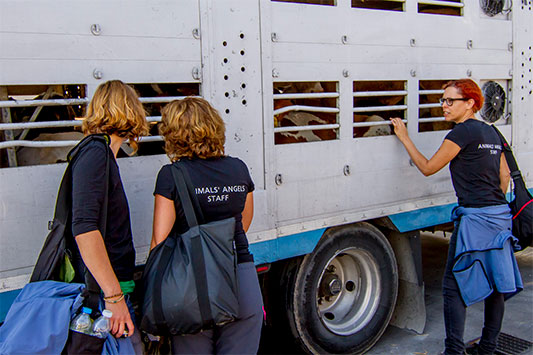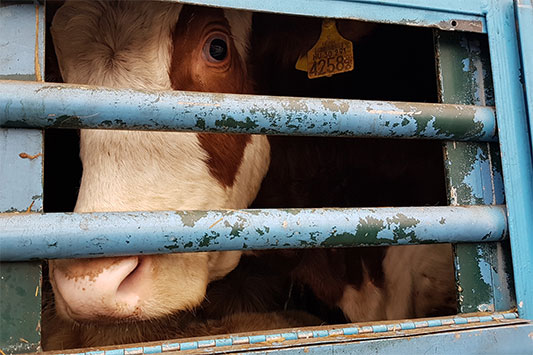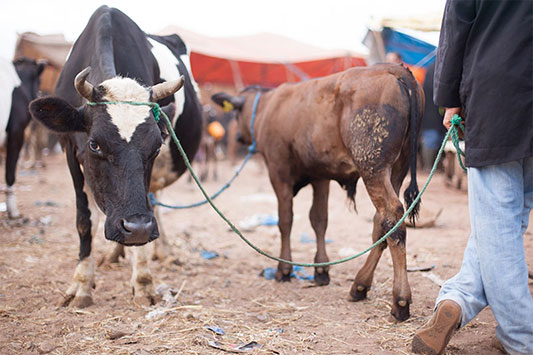Animals' Angels inspects animal transports going from EU to Turkey.
In Bulgaria, there is chaos inside the unloading stable located shortly before the Turkish border. All available boxes are full with cattle from France, Austria, Belgium, Germany, Czech, Hungary and Slovakia. Due to the space shortage many of the animals being delivered have to wait in the trucks until they can be fed and watered.
We observe a transport with German heifers from Poland being unloaded. The young cows are visibly happy to get off the truck and shyly but curiously they explore the stable. There is a name written on one of the ear tags – Romi – and by calling her name she actually turns her head around looking at me. Maybe just a coincidence, but since that moment, I cannot get Romi out of my head. But she is only one out of thousands of animals being on this route this week.
A Romanian truck carrying German calves is severely overloaded. The animals inside are not able to lie down or reach the drinking devices. The Romanian drivers tells us that he insisted to place not more than nine animals in each compartment, but the German state veterinarian and the exporter have had no qualms to put 12 animals in each of them. The driver wasn’t able to assert himself and he feels bad for the calves.
Other transports are so badly planned that the animals have to endure many additional hours of waiting at the Turkish border. Almost daily, dead calves arrive at the unloading stable at the border. Others die on the last part of the journey through Turkey. But this does not seem to bother anyone. We cannot understand why the parties involved fail to at least do proper planning on departure and to ensure the vehicles being in good condition and having feed on board and working drinking devices. Their indifference makes us exasperated – but we will continue our work: doing inspections, filing complaints, and be there with the animals.






